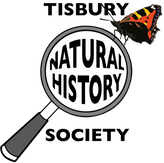|
As an ambassador for Dark Sky International, Steve Tonkin gave us a comprehensive talk on the importance of doing all we can to reduce nocturnal light pollution. Not only does it cause a disruption to the normal life of a wide range of animals, but it is having a long term effect on species numbers. Bright lights at night cause confusion, leading to death on roads, predation by larger animals and fewer opportunities to mate.
We heard examples about robins who get exhausted, mistaking artificial lights for daylight, as they sing through the night and migrating birds who are disoriented by lights and fly into buildings. There are parts of the world where already crops have to be pollinated by hand; for instance, in parts of Canada for their blueberry crops and in parts of China for their apples because insect colonies have vanished. Steve warned that we still have a way to go in further decreasing the light pollution across the AONB, otherwise we risk losing our dark skies designation. The light pollution over Tisbury was a particular concern to see when he showed us the satellite imaging of the AONB. So how can we help? https://darksky.org/ shows the way with guidance on how to assess your own home lighting, particularly in making sure that any outdoor light is appropriately placed with motion sensor activation and downward facing beams in warm not blue tones, to minimise disruption to wildlife. We can also look around our own community to see whether there is unnecessary lighting on public buildings and seek to persuade decision makers to implement changes. Comments are closed.
|
Photo: Avocets (Izzy Fry)
The headers display photos taken by our members. Do get in touch via the Contact Form if you'd like to submit a photo for selection.
Archives
May 2024
Categories
All
|

 RSS Feed
RSS Feed